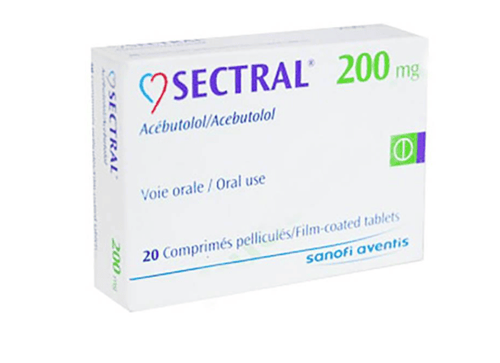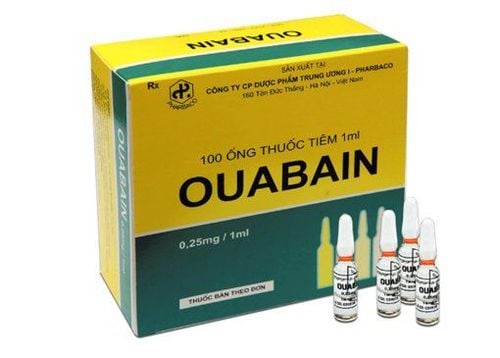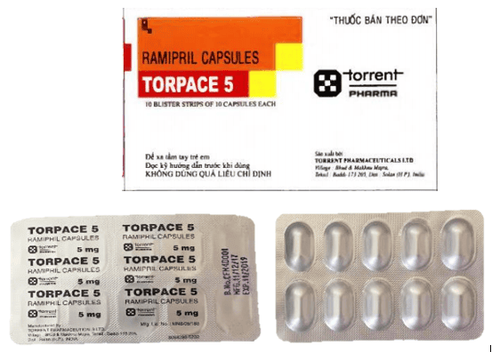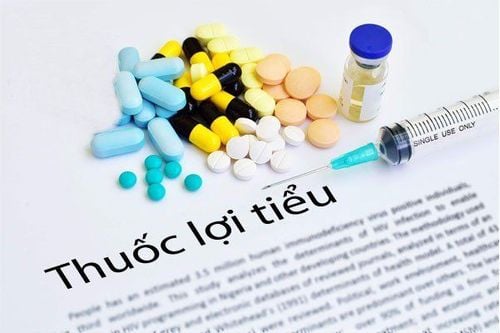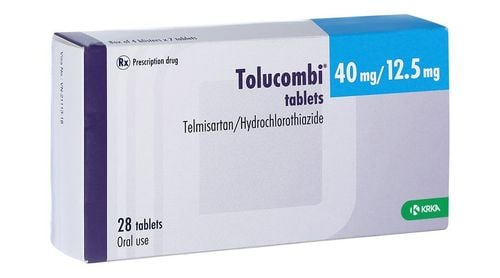This is an automatically translated article.
Midacemide is used in the treatment of hypertension and congestive heart failure. Midacemide has the main ingredients Quinapril - QPL and Hydrochlorothiazide - HCT.1. What is Midacemide?
Midacemide belongs to the group of cardiovascular drugs. Midacemide is prepared in the form of round white film-coated tablets, biconvex and smooth with a smooth surface, packaged in boxes of 1 bag x 3 blisters x 10 film-coated tablets.
Midacemide drug has 2 types:
Midacemide 10/12.5 contains: Quinapril - QPL 10mg, Hydrochlorothiazide-HCT content 12.5mg and other excipients: Lactose, magnesium carbonate, crospovidone, povidone, magnesium stearate, HPMC, PEG 6000, Tio2, talc. Midacemid 20/12.5 contains: Quinapril - QPL 20mg, Hydrochlorothiazide-HCT 12.5mg and other excipients: Lactose, magnesium carbonate, crospovidone, povidone, magnesium stearate, HPMC, PEG 6000, Tio2, talc.
2. What are the effects of Midacemide?
Midacemide drugs with ingredients including quinapril (in the group of ACE inhibitors - angiotensin converting enzyme inhibitors - ACE inhibitors) and hydrochlorothiazide (in the diuretic group) are used in the following cases:
Treatment of hypertension Idiopathic hypertension of any degree can be used alone or with diuretics and beta-blockers. Congestive heart failure used in combination with diuretics or cardiac glucosides
3. Dosage - How to take Midacemid
Midacemide is used according to the doctor's prescription. Patients who take the drug with or without meals, should take the drug at a certain time each day, do not break the Midacemid tablet to split the dose.
Dosage of Midacemid refer to the following:
Treatment of hypertension: 10mg Midacemid x 1 time/day, maintain 20-40mg Midacemid/day, divided into 1-2 times, maybe 80mg Midacemid/day. Concomitant diuretic use: 5mg Midacemide, then adjust the dose. Renal impairment: adjust dose of Midacemide according to ClCr. Elderly: 5mg Midacemide x 1 time/day. Congestive heart failure: 5mg Midacemide x 1 time / day, then adjust the dose (maybe 40mg Midacemide / day), divided into 2 times with diuretics or cardiac glycosides; Maintenance: 10-20mg Midacemide/day.
4. Contraindications to taking Midacemide
Midacemide drug should not be used in the following cases:
Patients with a history of allergy to quinapril, drugs in the same class as quinapril such as enalapril, captopril..., thiazides and other drugs that are derivatives of sulfonamides or any other ingredient part of the drug Midacemide. Midacemide should not be used in diabetics with hypertension or renal failure. Patients with a history of angioedema related to treatment with an angiotensin-converting enzyme inhibitor. Pregnant person. Breastfeeding Children Do not use Midacemide in patients with suspected or predisposed renal vascular disease such as bilateral renal artery stenosis or renal artery stenosis in a single kidney, kidney transplant recipients, peripheral vascular disease or atherosclerosis. whole body, kidney transplant. Midacemide should not be used in patients with: gout, anuria, hyperuricemia, Addison's disease, hypercalcemia, severe liver/kidney failure.
5. Midacemide drug interactions
The use of Midacemide with the following drugs should be avoided:
Potassium-sparing diuretics, Potassium supplements or potassium mud substitutes. Lithium is used to treat depression and mania. Drugs that act on the Renin-Angiotensin System (RAS). Tetracycline, other drugs that interact with magnesium. Non-steroidal anti-inflammatory drugs such as aspirin, ibuprofen... mTOR inhibitors to treat kidney cancer such as temsirolimus. The drug sodium_aurothiomalate. Allopurinol, procainamide, corticosteroids, cytostatics or bone marrow suppressants. Alcohol, narcotics, barbiturates. Antidiabetic drugs (oral drugs and insulin). Cholestyramine and colestipol resins. Corticosteroids, ACTH. Glycosides digitalis. Amines increase blood pressure Skeletal muscle relaxants (tubocurarin). Gout medication (allopurinol). Calcium salts. Beta-blockers and diazoxide, amantadine, anticholinergics (eg atropine, beperiden), cytotoxic drugs (eg cyclophosphamide, methotrexate).
6. Side effects when taking the drug Midacemid
Midacemide is generally well tolerated. In clinical studies, the adverse effects of midacemide were usually mild and transient.
Common
Persistent dry cough : Usually occurs during the week of Midacemide treatment , persists throughout the treatment period and resolves within a few days of stopping Midacemide . Headache. Increased blood urea nitrogen (BUN) and creatinine. Hyperkalemia. Uncommon
Cardiovascular: Hypotension is common in patients with hyponatremia or hypovolemia, congestive heart failure, tachycardia, and palpitations. Nervous: Somnolence, insomnia, syncope, agitation, depression, paresthesias Gastrointestinal: Nausea, flatulence, dysgeusia, dry mouth and throat, diarrhea/constipation. Skin: Skin rash, itchy skin. Genital: Impotence. Musculoskeletal: Muscle pain, joint pain, back pain. Eyes: Visual disturbances, blurred vision, decreased visual acuity. Fever, edema, fatigue, weakness, sweating, sore throat, hair loss. Rare
Cardiovascular: Angioedema, chest pain often accompanied by severe hypotension, orthostatic hypotension, angina, arrhythmia, cardiogenic shock. Gastrointestinal: Gastrointestinal bleeding, pancreatitis. Liver: Increased liver enzymes, hepatitis, cholestatic jaundice, fulminant hepatic necrosis. Skin: Dermatitis and polymyositis, exfoliative dermatitis, photosensitivity. Urinary: Acute renal failure, increasing renal failure. Respiratory: Eosinophilic infiltrative lung disease. Hematology: Neutropenia or agranulocytosis (fever, chills), thrombocytopenia, hemolytic anemia. Metabolic: Irregular heartbeat, severe hyperkalemia. Antinuclear antibody reaction (-), photosensitivity, fever, back pain.
7. Precautions when using Midacemide
Cautiously use Midacemide for patients with renal failure, patients taking quinapril and potassium-sparing diuretics, patients undergoing surgery under anesthesia.
When taking Midacemide, white blood cells should be monitored when there is colloid disease or kidney disease.
Please dial HOTLINE for more information or register for an appointment HERE. Download MyVinmec app to make appointments faster and to manage your bookings easily.




